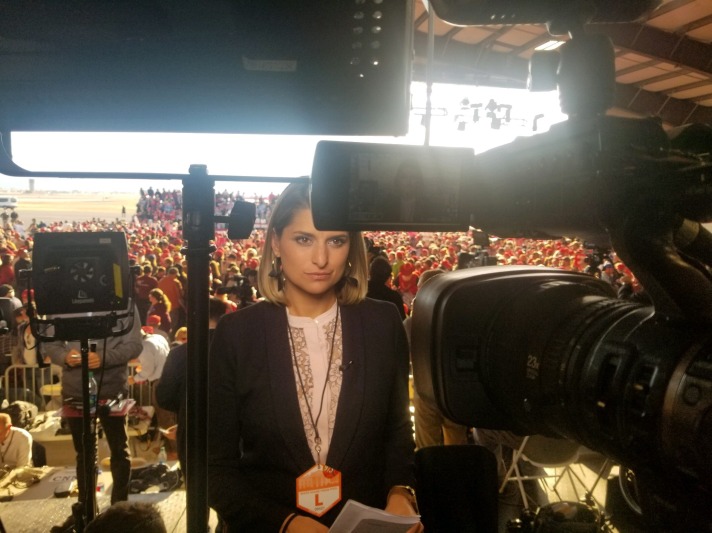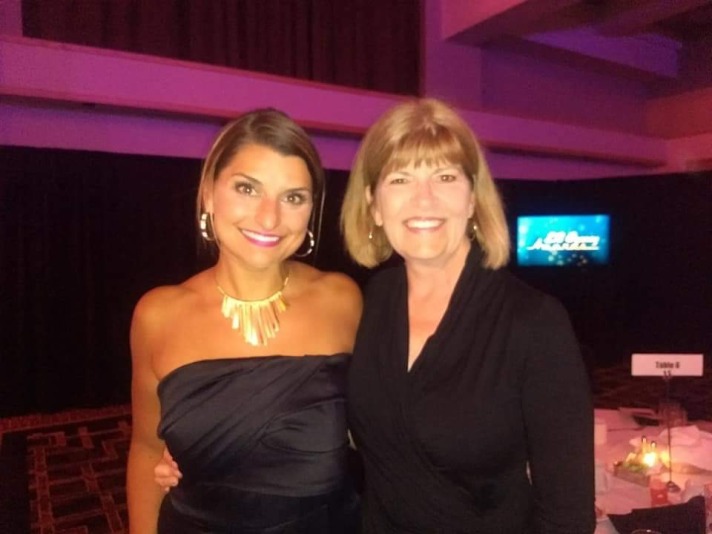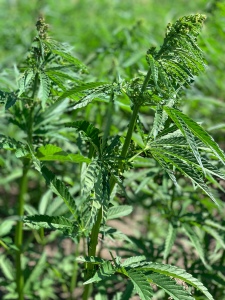Mederios Babb is a news reporter at the CBS affiliate, KSEE/CBS47, in Fresno, California. Mederios grew up in Butte, America and graduated from the University of Montana in December of 2017. While at UM, she received the Northwest Regional College Student Award of Excellence in 2016 and the Dean’s Award.
Prior to making a major market jump to Fresno, Mederios covered breaking news, city and county government and national news events for KBZK, the CBS station in Bozeman.
Mederios has some great advice and insight from her days at the J-School to help guide students as they map out their journalism future.
Mederios Babb
At the J-School: August 2014 – December 2017
Areas of focus: broadcast journalism, investigative journalism, minor in business administration, producer of documentary unit, “Montana RX: Unintended Consequences.”
How did a J-School education affect your career path?

It definitely affected my career path by getting me a job right out of college. My last semester of college, I already had two offers on the table from Montana TV stations: KPAX in Missoula and KBZK in Bozeman. I ended up turning the offers down because I really wanted a position in Spokane that I ended up not getting. My first real job rejection took me by surprise, but it was one of the best things that ever happened to me because it made me stronger. KBZK reached back out to me in February and after a lot of thought, I made the decision to work for KBZK/KXLF. I spent a little over a year covering a little bit of everything, but mainly focusing on city and county government. It was my experience there that allowed me to grow immensely and now I am now at my second market in Fresno, California., which is a huge jump.
What are you doing now and how did your journalism education prepare you?
I am currently a news reporter for KSEE24 and CBS47 in Fresno, California. I started in May 2019 and can already tell that I made the right move by how much I am improving. I am one of the youngest people in the newsroom, meaning I need to work extra hard for people to take me seriously and show that I do have what it takes. My education prepared me by giving me a strong foundation. The business has changed a lot over the years and now reporters are expected to know how to do it all. What I mean by that is everyone coming out of college need to know how to be an MMJ (multimedia journalist) and that includes knowing how to use the camera (iris, shutter speed, white balance, focus, exposure), shoot video, edit, write, audio track, and post digitally. It is a lot of work but that is the way the business has shifted. The University of Montana really helped me by teaching me how to shoot video well and efficiently putting me ahead of many others. Yes, it is great to be great at one skill, but it is even better to be good at many skills. It makes you more diverse and valuable to future employers.
What do you wish you knew when you first started at UM?
Take advantage of having weekends off. Don’t rush your education but also don’t take your degree lightly. Participate in as many activities, hobbies, events as possible. Work on creating an image and audience through social media. Learn how to use Instagram, Twitter, Facebook, LinkedIn, and Snapchat to your advantage. It will help you and your station in the long run.
 What advice do you have for students considering pursuing a degree at the J-School?
What advice do you have for students considering pursuing a degree at the J-School?
I would say to make sure that you are willing to put in the hard work and are serious about pursuing a career in the field. I know so many people who have not stayed in the business because they were not cut out for it. You must be a hard worker with a lot of dedication to put in the work. If you are passionate about telling people’s stories, then it will be worth it, if not you are wasting your time.
What tips do you have for incoming students at UM?
I have always lived by the saying “hard work beats talent when talent doesn’t work hard,” and each day I remind myself that as long as I am working hard and improving, I will be OK. This business is not easy, and if you are looking for a 9-5 job Monday-Friday, this is not the right profession for you. However, if you love to get out and explore, tell stories, and see raw emotions, this is the right fit. You will be able to do things many don’t get to experience like reporting on a presidential visit, flying in a six-person plane, operating an excavator, and so much more. If you work hard and go to work willing to learn each day, you will be great. One last tip that I wish someone would have told me: it is OK to make mistakes as long as you learn from them and don’t let them define you. You will mess up, that is OK. You will make mistakes, that is OK. However, how you react to those mistakes and making sure not to make those mistakes again will set you apart from the rest.
Beyond your journalism education, what were some of your favorite experiences in the community of Missoula?
I loved First Fridays and being from Butte it was always fun to go to the Mo Club on the weekends. I am a big sports fan and spent a lot of time at the Pressbox and also loved going for hikes up to the M. Some of the best places to eat are Ciao Mambo and 5 on Black.
Since leaving the J-School, what do you miss the most?
I do miss the football games and seeing professors like Kevin Tompkins, Ray Fanning and Ray Ekness.
What are some key facts and personal reflections you think potential recruits would benefit from knowing about the J-School?
This degree is very hands-on and if you like to learn by doing, this would be a wise pick for you. Every day is different and you will be able to do things most people never get the opportunity to do. The J-School set me up for my career but you will honestly learn the most by getting out and doing. I learned so much after school during my first three months in the business. Each day, I feel like I am getting better and hopefully one day my hard work ethic, drive, and passion for getting news will help propel me to where I hope to be one day, which is a top-5 market. The J-School gave me the skills (especially with the camera) to make me stand out and work toward that goal each day.




